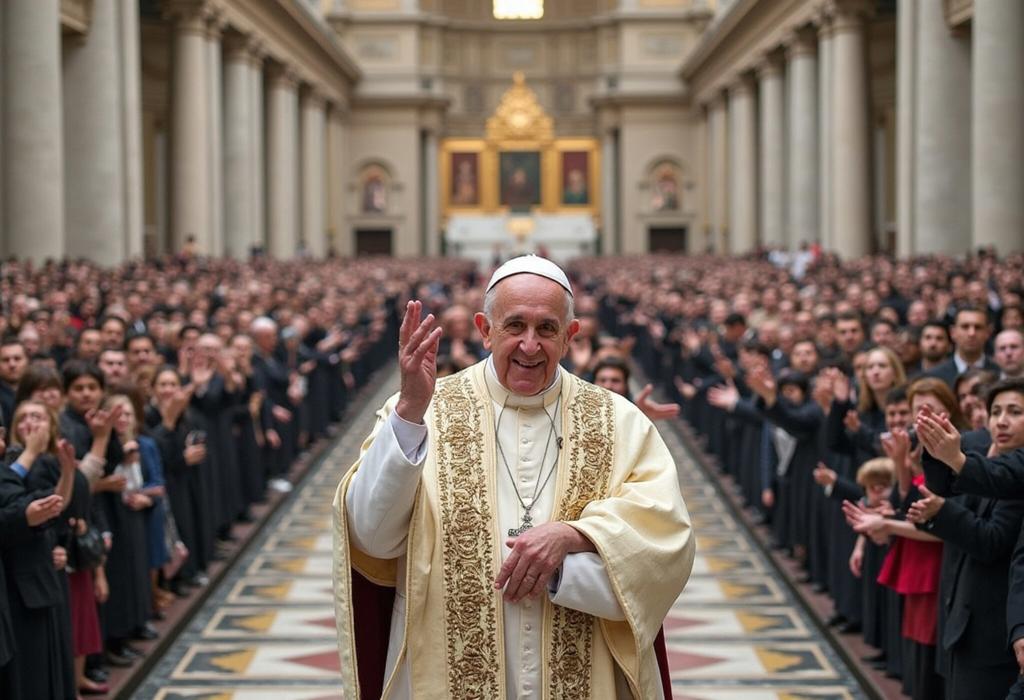Pope Francis passed away at the age of 88 due to a cerebral stroke that led to irreversible heart failure, following a bout of pneumonia. His death has triggered an international wave of mourning, as leaders worldwide express their condolences and pay tribute to his contributions to the Church and society.
With the Vatican announcing his funeral plans, set for Saturday at St. Peter's Basilica at 10 a.m. local time, thousands are expected to gather, including cardinals and global dignitaries. Notably, President Trump and first lady Melania Trump are confirmed to attend, highlighting the global significance of a pope who fostered interfaith dialogue and social justice.
In his last will, Pope Francis requested a simple burial at the Papal Basilica of Santa Maria Maggiore. This reflects his lifelong commitment to humility and service, advocating for the marginalized throughout his papacy.
Political leaders, including congressional figures and international heads of state, have highlighted his dedication to the poor and his impactful advocacy for the environment. Former President Obama described him as a 'rare leader who made us want to be better people.'
However, the reactions haven't been entirely uniform. The Survivors Network of those Abused by Priests criticized his papacy, branding it a 'preventable catastrophe' for abuse survivors and calling for more stringent accountability within the Church. This highlights a complex legacy where admiration coexists with calls for reform, a struggle reflective of ongoing tensions within the institution he led.
The global response to his death prompts reflection on his leadership style, marked by a blend of traditional values and progressive ideas, notably regarding inclusivity and climate change. In the weeks that follow, as the Church prepares for a conclave to select a new pope, questions surrounding the future direction of Catholicism will echo the calls for continuity and reform that defined his tenure.
In summary, Pope Francis leaves behind a multifaceted legacy—respected by many for his compassion and criticized by some for perceived inaction. His funeral will not only honor his life but will also recognize the diverse perspectives on his impact on millions.
AD
AD
AD
AD
Bias Analysis
Bias Score:
35/100
Neutral
Biased
This news has been analyzed from 25 different sources.
Bias Assessment: The reporting presents a mostly balanced view of Pope Francis' legacy, incorporating a range of perspectives—from tributes by global leaders to criticisms from advocacy groups. However, the emphasis on his positive contributions may overshadow the calls for accountability in the Church's handling of abuse, indicating a slight bias in celebrating his life while underrepresenting critiques of his papacy's shortcomings.
Key Questions About This Article




